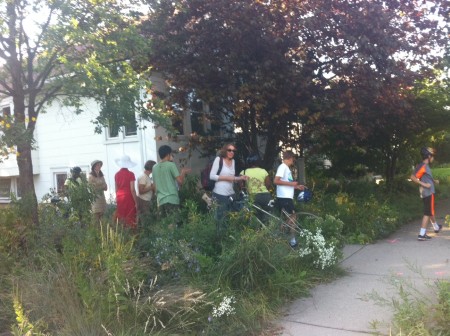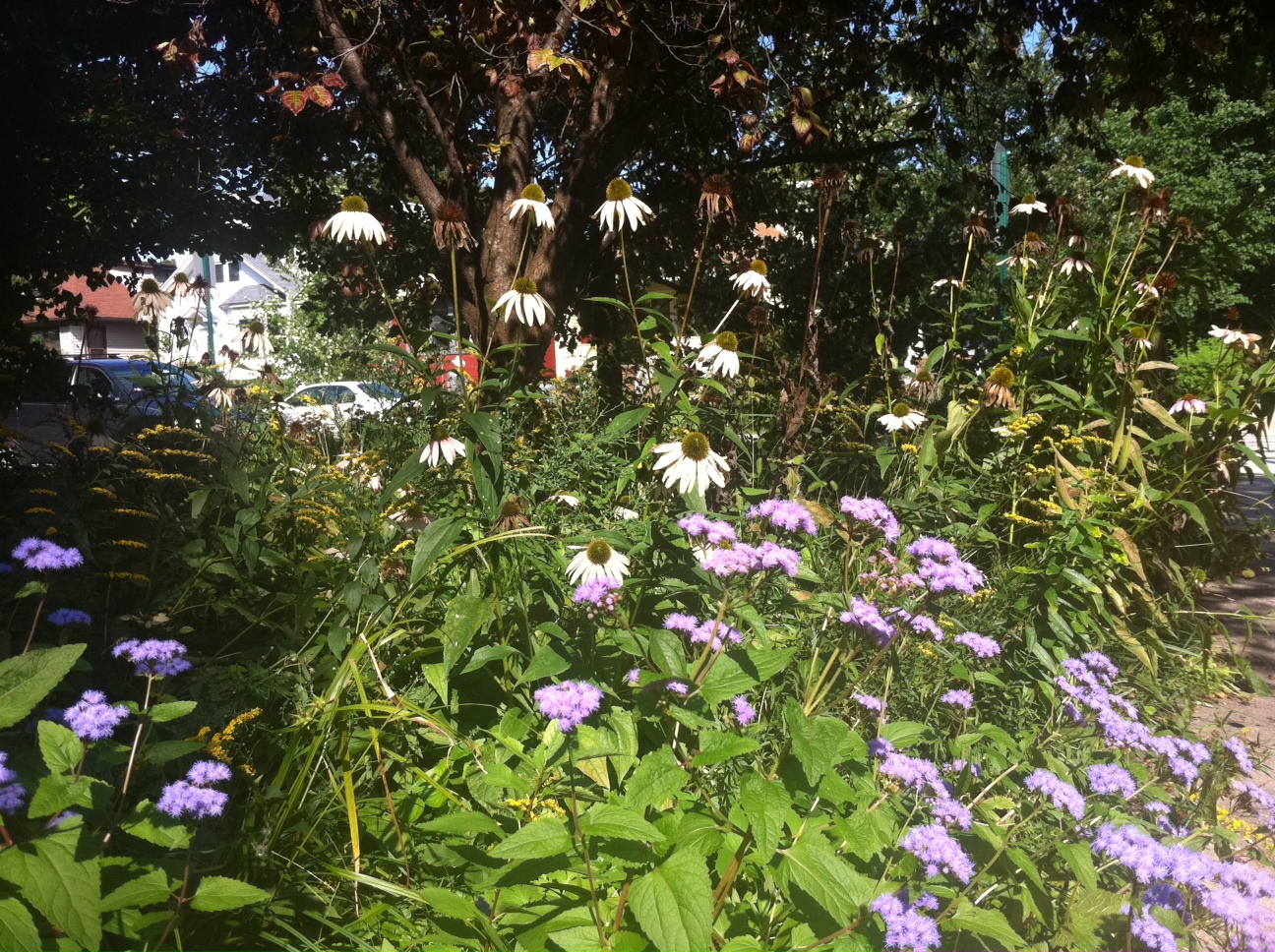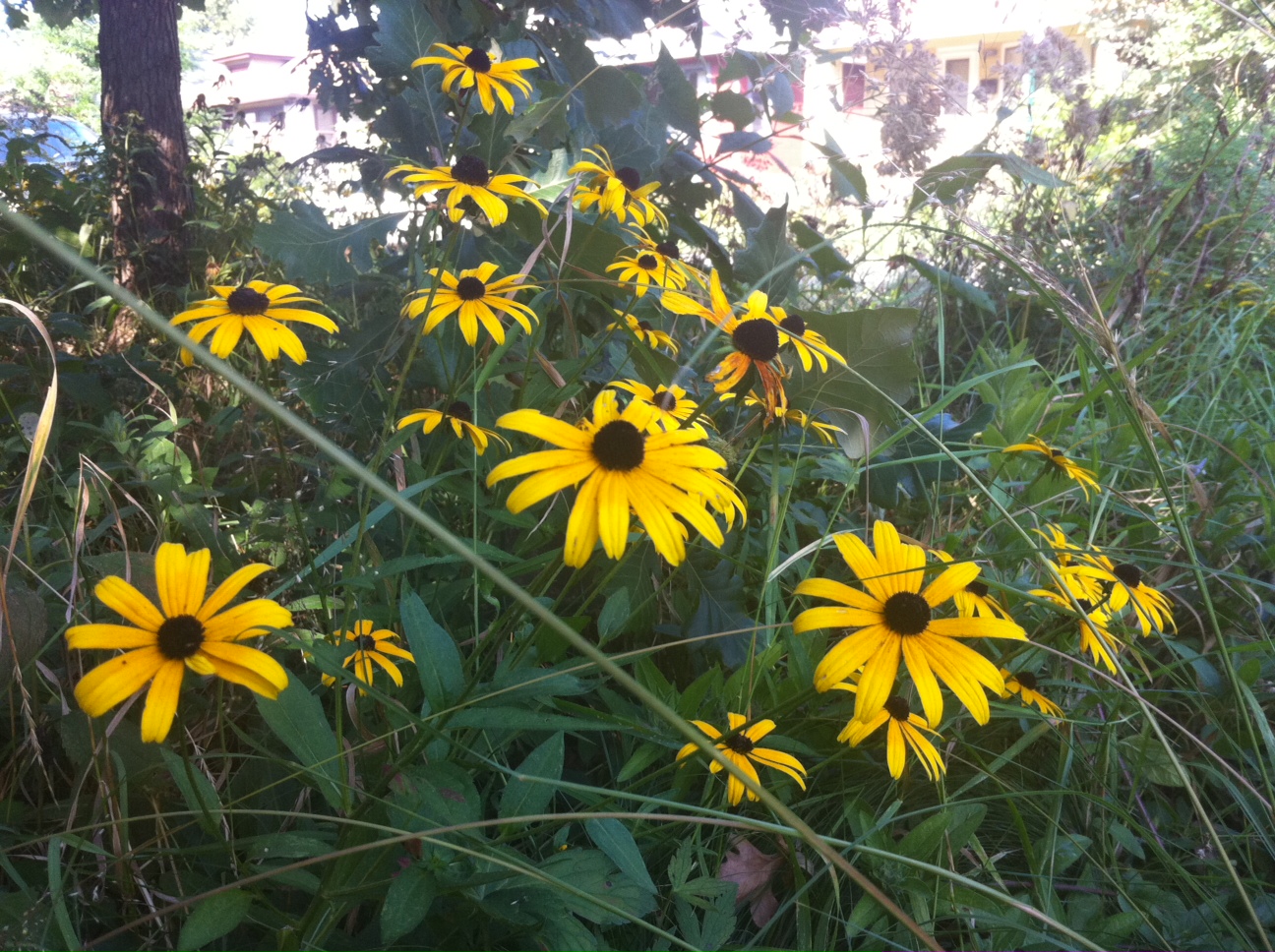This presentation will include discussion on how Oak Park and River Forest schools and congregations can install their own native plant/butterfly gardens and be a part of the “Wild Ones 200” Native Garden Corridor in Oak Park and River Forest. Learn how to get involved, what support Wild Ones will provide and when and how to get started. Learn about native plants and why they are so valuable in designed landscapes, and how they benefit institutions and the broader community.
Big Year Birding Competition
Calling all new and experienced birders! The Big Year Birding Competition, sponsored by the Forest Preserves of Cook County, began March 1, and ends December 31. This is not a competition about stamina or skill, but about getting outside, observing wildlife, and convincing as many friends as possible to get involved.
Wild Ones Springtime Native Plant Sale
Lure birds, bees, and butterflies to your garden by purchasing native plants through West Cook Wild Ones this spring. You may order in advance, from now until April 15. The sale takes place on May 14, at Euclid Avenue United Methodist Church parking lot, on Washington St., one block east of Oak Park Ave., in Oak Park. Please bring boxes and bags to carry home your pre-ordered plants as well as those purchased the day of the sale.
Natural Capital: Hope for the World
We've all heard of capital. It's king, right? Plus, there's venture capital: wealth that creates new businesses. Human capital? Yep, we know that by the sweat on our brow.
And then there's natural capital. Ever heard of it? Paddy Woodworth, author of Our "Once and Future Planet," will come to Oak Park to help us understand the concept of restoring natural capital and how this idea is transforming the way the world values and uses nature.
Irish Author Presents on Restoring the World in the Climate Change Century
Join us on November 10, 2015, 7 PM to 9 PM at the First United Church of Oak Park, 848 Lake Street, Woodworth will be offering a tour of exciting restoration projects he has visited all over the globe, ranging from prairies in the Chicago region to the South African bush; and from ultralight pilots teaching whooping cranes how to migrate the length of a continent to the restoration of bogs in his native Ireland.
Staying Grounded with The Year of Soils
Whether it’s black loam or brown humus, you can dig into the soil this spring to celebrate the International Year of Soils. The Food and Agriculture Organization of the United Nations is implementing, “Healthy Soils for a Healthy Life” to raise awareness about sustainable soil management in order to support food security and diverse ecosystems worldwide. Not only is the quantity of viable soil diminishing, but its quality is in decline as well.
Backyard Prairies--Why Create a Wildlife Corridor?
Making the leap to a sustainable future
Introduction to Biomimicry, Interactive Workshop: Sunday, Nov 9, 2014, 2:00-4:00pm, Oak Park Conservatory, 615 Garfield St. Have you ever wondered how we will make the leap from today to our sustainable future? Biomimicry, the practice of learning from nature to solve human problems, is emerging as a powerful and disruptive tool for creating sustainable design and systemic transformation.
"Birds, Bees & Butterflies Native Garden Tour" gets enthusiastic response
The September 7th Birds, Bees & Butterflies: A Native Garden Tour hosted by West Cook Wild Ones and Green Community Connections drew more than 140 experienced and beginner native plant gardeners and those wanting to learn what this was all about. They came from near (Oak Park, River Forest, Forest Park, Berwyn and Cicero) and farther—Plainfield, Downers Grove, Elk Grove Village and various parts of Chicago — to visit 11 residential and public gardens. More than 40 homeowners, master gardeners, volunteers, sponsors and Forest Preserve staff members also helped to make the afternoon a rich, educational - and fun! - event. The West Cook Wild Ones Wildlife Corridor also received a lot of attention at the event, and more people pledged their gardens to be part of it. The Wildlife Corridor is envisioned as a contiguous swath (at least 2 per block) of native gardens in residential and public spaces from Columbus Park in Chicago to Thatcher Woods in River Forest. Watch for more detail and ways to be involved in this unique and important project which will be coming soon.
After the garden tour, we informally surveyed participants and volunteers. We thought we'd share some of their enthusiasm, in hopes that through the upcoming, long winter, you might get inspired to plan some new native plantings in your own yard:
photo (20)
“It was reaffirming to see that native garden lovers are so aware of the need to use non-toxic products to help their gardens grow!”
“It inspired my sister [who was visiting from Pennsylvania] to start a garden!”
“I was reminded how important it is to see other people’s gardens and share information, as we can always learn more.”
“The children (and adults!) really enjoyed the impromptu live insect displays, like the katydid I found on my car bumper and the caterpillar found in the forest preserve garden. We provided them a small habitat for the day and released them at the end of the event.”
“The aliveness of the gardens seemed to energize the people that visited them. We went away smiling after watching the butterflies, bees and birds in the gardens.”
“Even the most experienced native gardener I know came back telling of seeing a rain garden on the tour and being emboldened to try one in his own gardening.”
“We want to host a garden tour like this one in our town!”
Read Ginger Brown Vanderveer's (West Cook Wild Ones co-founder) article on what native gardening means to her. She led 28 participants on a guided bike tour of six of the gardens during the event.
Stay tuned for more native gardening events next spring:
One Earth Film Fest showing of “Hometown Habitat,” in March 2015
Wild Ones Native Plant sale in May
Special guest speaker, Doug Tallamy, author of Bringing Nature Home, will come in May to share his unique perspective on bringing nature to urban areas as our rural lands become more developed or inhospitable due to industrial agriculture methods and increased use of pesticides.
“Unless we modify the places we live, work and play to meet not only our own needs, but the needs of other species as well, nearly all species of wildlife native to the United States will disappear forever. . . There is, however, a way out of this mess . . . Evidence suggests that . . . most species could live quite nicely with humans if their most basic ecological needs were met.” — Douglas W. Tallamy, Bringing Nature Home
BlackSwalltailMaleGinger3.
Walking the Talk: Douglas Chien's Urban Native Garden
Douglas Chien's Oak Park garden is attractive, colorful and full of life — and full of native plants. His garden was one of eleven featured on the September 7th, Birds, Bees & Butterflies native garden tour, which was co-sponsored by Green Community Connections and West Cook Wild Ones. In fact, many birds (including a female goldfinch), bees and quite a few species of butterflies appeared in his garden that day. Plus, more than 70 people came through for a tour. Douglas, the Advocates' Network Manager with Friends of the Forest Preserves, explained to visitors how he created his native plant oasis in the heart of West Cook County. About 12 years ago, Douglas and his partner Michele Gurgas bought their Oak Park home on a corner lot, which had a traditional landscape highlighted by lawn and two large American elm trees gracing the parkways. But within the year, the trees succumbed to Dutch elm disease and were taken down.
To take advantage of the new, plentiful sunshine, Douglas planted two young native trees in his front yard: an American plum and a pagoda dogwood. In addition, he asked the village to plant a bur oak in the parkway.
 "I requested that the village buy the tree from Possibility Place Nursery, which specializes in native plants that are local ecotypes," says Douglas. Local ecotypes are plants that were propagated from parent plants that have been growing in our specific area for hundreds or even thousands of years. Today, his well-adapted bur oak has a graceful structure and is healthy and vigorous.
"I requested that the village buy the tree from Possibility Place Nursery, which specializes in native plants that are local ecotypes," says Douglas. Local ecotypes are plants that were propagated from parent plants that have been growing in our specific area for hundreds or even thousands of years. Today, his well-adapted bur oak has a graceful structure and is healthy and vigorous.
These three trees form the basis for a savannah ecosystem in his east-facing front yard. On the ground, a mix of sun- and shade-loving plants mingle, including wild ginger, five species of milkweed, pale purple coneflower, three goldenrod species, American beak grass, trout lily and Joe Pye weed.
 Along the sunny, south side of his home, Douglas has built a prairie in the parkway. Purple prairie clover, several aster species, prairie dock and a variety of grasses and sedges smile at the sun.
Along the sunny, south side of his home, Douglas has built a prairie in the parkway. Purple prairie clover, several aster species, prairie dock and a variety of grasses and sedges smile at the sun.
"I recommend to people who want to plant a native garden that their plant mix include at least 50 percent grasses and sedges," Douglas says. "They provide support to the flowering plants. Grasses and sedges also compete for space and nutrients, so the flowering plants don't get too tall and leggy."
He also adds: "Density and diversity are key to a successful native garden. You want as many different kinds of plants planted very close together. Planting on 12-inch centers, like typical ornamental gardening, leaves room for the weeds."
 Native habitats need to be burned so they can stay healthy, seeds can germinate and weeds stay under control. Douglas worked with the Village of Oak Park two years ago to change local ordinances. Now residents who go through an application process and obtain proper permits can burn their native landscape yards.
Native habitats need to be burned so they can stay healthy, seeds can germinate and weeds stay under control. Douglas worked with the Village of Oak Park two years ago to change local ordinances. Now residents who go through an application process and obtain proper permits can burn their native landscape yards.
"When I first moved here and started planting natives, everyone else on the block had traditional landscapes," says Douglas. "But today, many more people on my street are planting natives."
And that's a good thing, not only for the birds, bees and butterflies, but for other wildlife, the soil and the people who live here, too.
For more information, you can contact Douglas at 708-763-0953 or dskchien@sbcglobal.net











